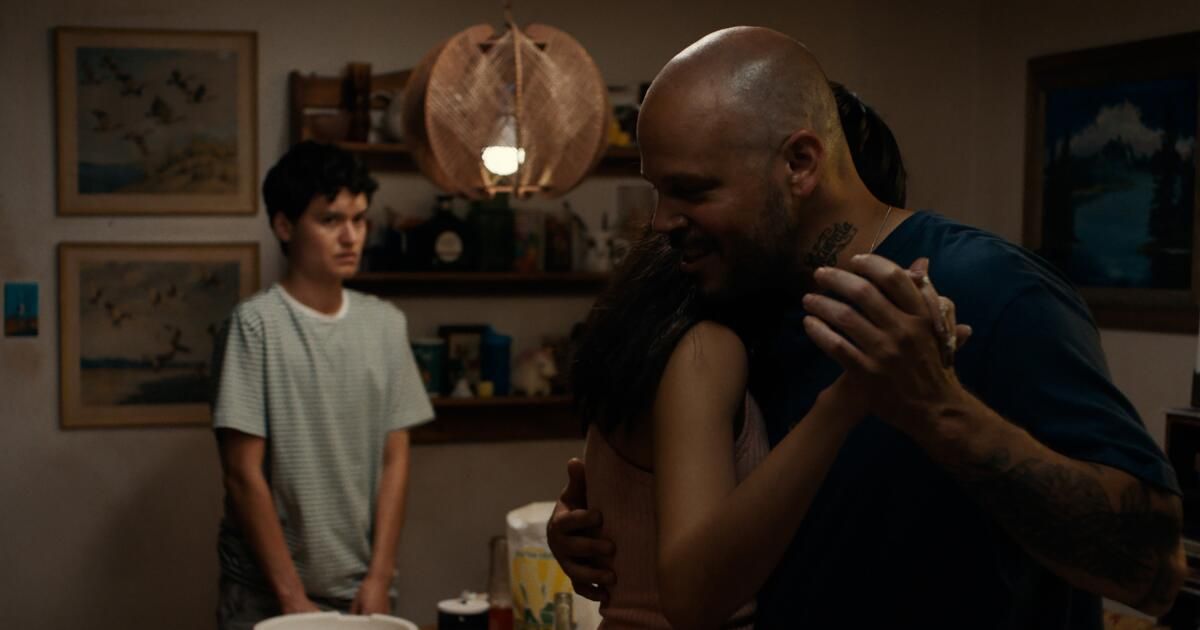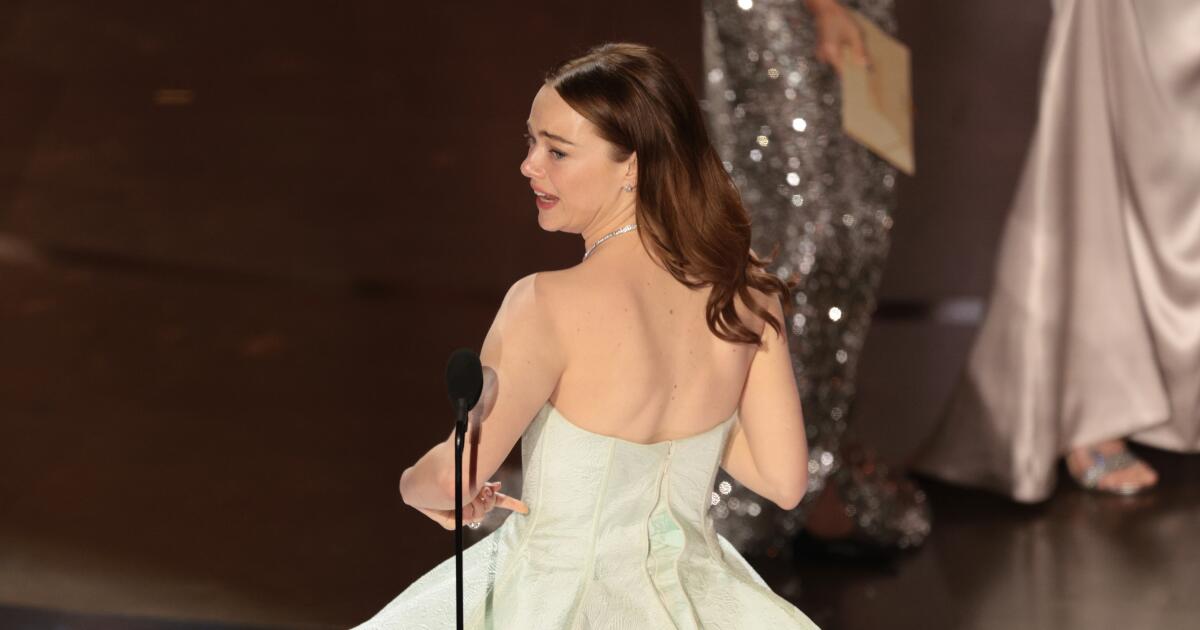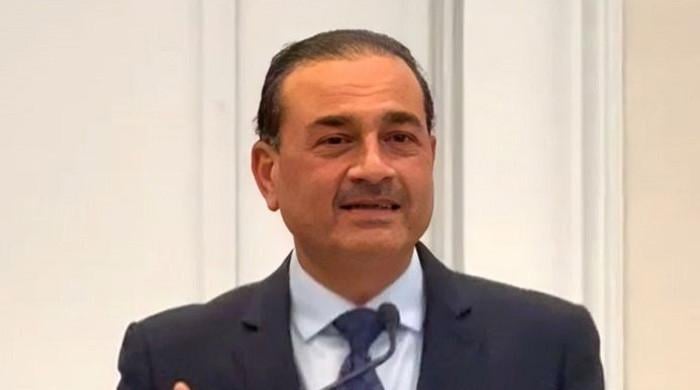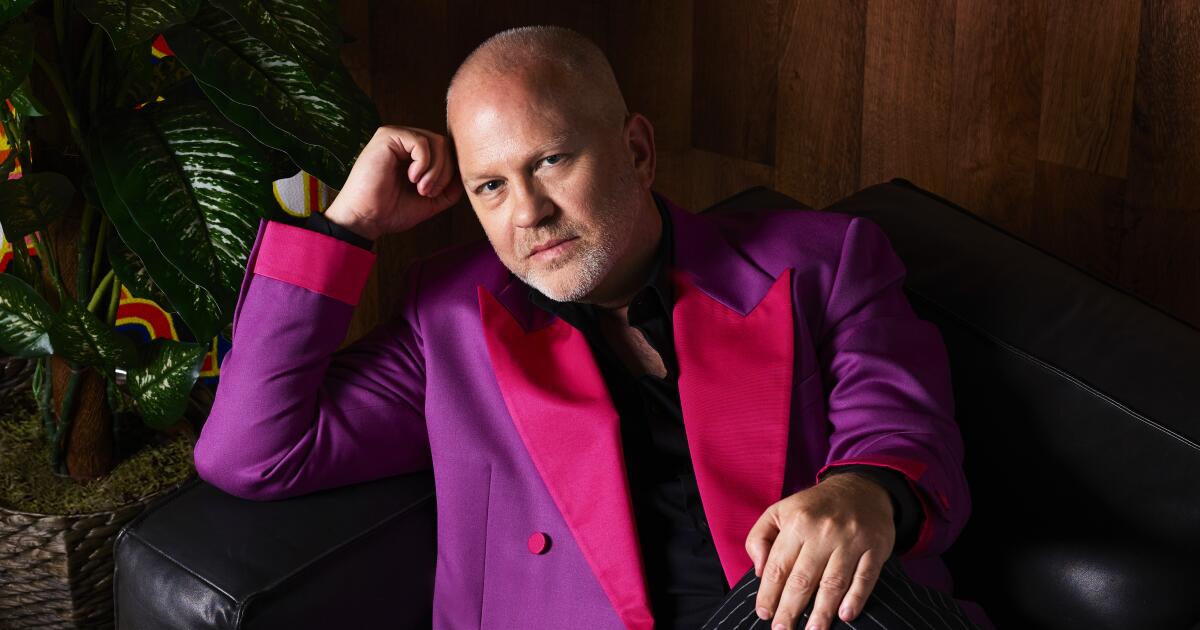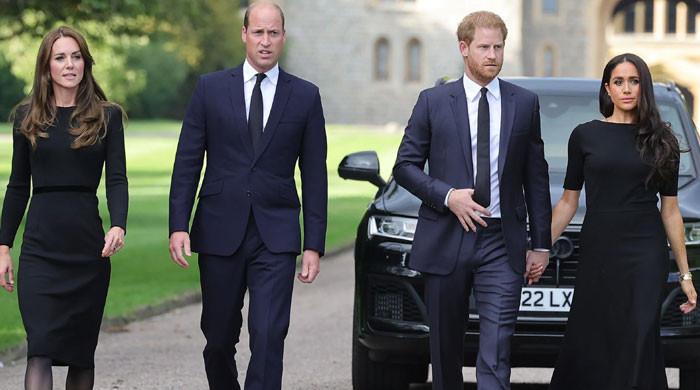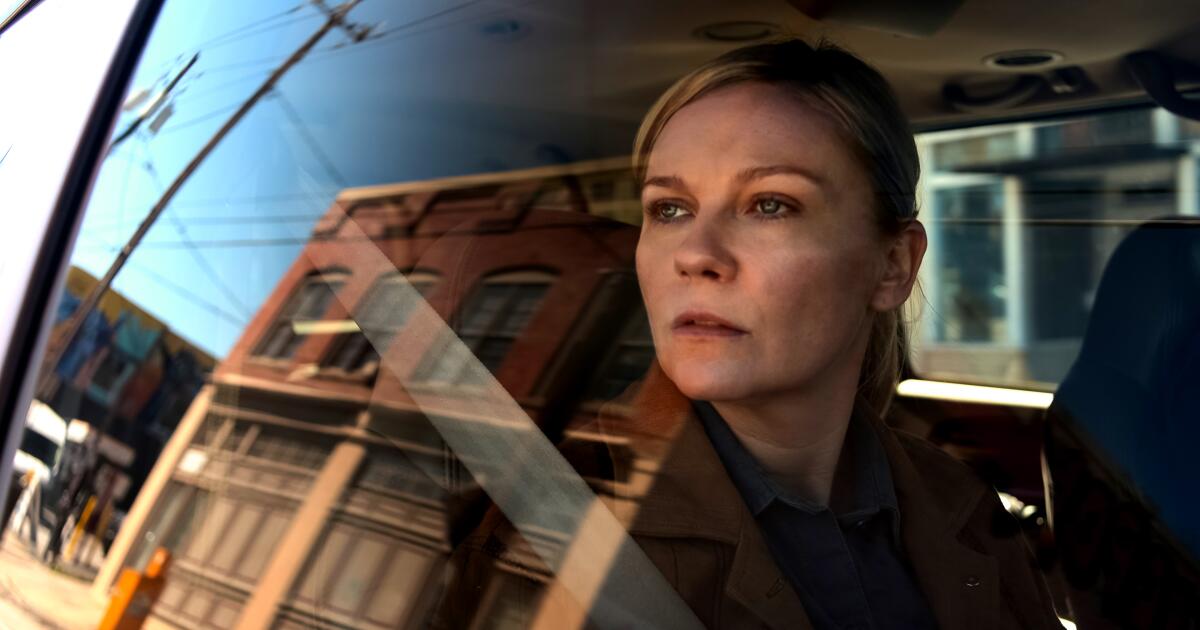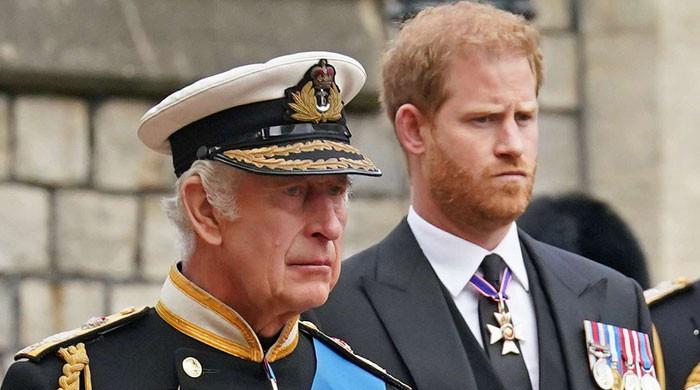When “In the Summers” begins, Vicente is anxious. Sitting in his car, obsessively flicking his lighter, absentmindedly tapping the steering wheel with his hand to calm his nerves, this ordinary, working-class man stares out the window, waiting. The most important time of the year for Vicente is about to begin, the season that defines him. His two young daughters are finally leaving the airport, and he excitedly goes to greet them. Summers are when he can be a father. Summers are his chance to prove himself.
Told in four chapters over just under 20 years, Colombian-American writer-director Alessandra Lacorazza’s superb debut feature may recall other singular indies like “Moonlight” and “Aftersun” in its structure and themes, but this deceptively modest autobiographical drama is so precise and insightful that it comfortably occupies its own emotional landscape. It’s a film about that father, but also about his daughters, who won’t be little for long.
The first chapter sets the stage for the film’s narrative framework. Vicente (played by rapper René Pérez Joglar, who records under the name Residente) lives in Las Cruces, New Mexico, in his late mother’s house. He moved there sometime after he and his wife divorced, and now has custody of Eva (Luciana Quinonez) and her older sister Violeta (Dreya Renae Castillo), who normally reside with their mother in California, only during the summers. Eva and Violeta may be school-aged, still impressionable enough to admire their gregarious, loving father, but they can spot the small cracks in his jovial surface. Vicente drinks a little too much, gets angry too easily. He wants his daughters to have fun in Las Cruces, but what he really wants is for them to know that he’s a great father. The divorce is never mentioned, but Vicente is still fighting that battle.
The opening segment ends on a curious, ambiguous note (Violeta impulsively decides to cut her hair in a boyish style, angering her conservative-minded father) that will inform much of what follows. Over the next three chapters, much like “Moonlight,” “In the Summers” continues to jump back and forth in time. Eva and Violeta will return to Las Cruces (not always the two sisters make the trip, however) as we witness the change in this father-daughter relationship over these pivotal summers (older actors play the daughters in later chapters). Lacorazza is a filmmaker who values showing rather than telling, and he resists grand speeches that lay out characters’ mindsets. Instead, a few images that recur throughout the chapters explain everything. Just watch as Vicente’s once-pristine backyard pool gradually degrades from neglect.
Winner of the Grand Jury Prize and the Directing Award at Sundance this year, “In the Summers” grows out of Lacorazza’s memories of his late father, and the film’s most striking moment, a car ride that serves as the haunting finale to Part 2, played out almost exactly the same way in real life. A filmmaker who draws on personal experience can sometimes risk a lack of perspective (he knows these incidents so intimately, but the audience is left out in the cold), but once the structure of this patiently crafted, richly observed drama becomes clear, each new chapter possesses gripping suspense.
How have the three characters changed since we last saw them? And how might this new summer heal (or worsen) the invisible wounds inflicted in the previous chapter? Lacorazza’s film is one of gradations, the daughters in the later chapters subtly carrying the accumulated disappointment and stubborn love these women still harbor for their flawed father. Vicente and his daughters have trouble speaking directly about the faults that have built up over the years between them. Lacorazza maintains that tension, her characters’ sad smiles saying it all.
The actors playing Eva and Violeta are all superb, especially Sasha Calle and Lío Mehiel in the final chapter, which emphasizes Lacorazza’s meditation on resignation and acceptance. But Pérez Joglar’s Vicente, much like Paul Mescal’s troubled Calum in “Aftersun,” is both the film’s centerpiece and its greatest mystery. A maddening combination of good intentions and self-destructive tendencies — complacent sensitivity and unforgivable pettiness — Vicente has a sharp mind for math, physics and astronomy that he loves to share with his daughters. But, as played by Pérez Joglar, who makes his feature-length acting debut, this proud father is also consumed by the belief that life never gave him a fair chance, and he takes that resentment out on everyone around him. It's a performance filled with repressed bitterness, and the pain comes through most clearly when Vicente acknowledges that his children will eventually stop unconditionally adoring their father. Try as he might to convince them that he's a great father, he can't disguise his flaws (including his inability to hold down a job or a partner), but his insistence on maintaining that illusion is what becomes the tragedy of the film. Like his daughters, we never really see Vicente in his entirety because he's so determined to hide himself.
But families have a way of understanding each other that the rest of us can never fully comprehend. Curiously, Lacorazza chooses not to include subtitles for the film’s Spanish dialogue. Vicente occasionally uses Spanish with his daughters, who know what he’s saying but prefer to speak in English. “I made this decision to allow the audience to engage with emotions that transcend language,” Lacorazza has explained, and for those who don’t speak Spanish (like this reviewer), the decision achieves the desired effect.
But it also adds another note of grace to this delicate, sophisticated portrait of social class, sexuality and fatherhood. There may be moments in “In the Summers” when you don’t understand every single thing being said, but the characters do, and they share a private language of familial dysfunction and unspoken anguish. The rest of us can watch, we can even understand the gist of their conversations, but their world is their own. It’s a testament to this deeply moving film that Lacorazza has laid bare her own complicated feelings about her father while acknowledging that, as shown in a quietly heartbreaking final scene, sometimes words fail.
'In the summers'
No rating
Duration: 1 hour, 35 minutes
Playing: Opening Friday, September 20 at the Laemmle Royal, West Los Angeles

